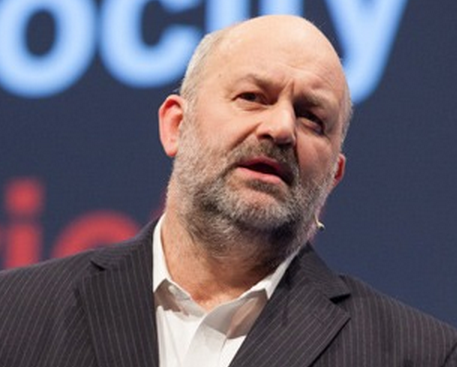AWS CTO Vogels highlights ecosystem, courts developers

LAS VEGAS---Amazon Web Services CTO Werner Vogels made the case that the cloud provider's partner network and ecosystem is as valuable as the services it rolls out at a breakneck pace.

On day two of AWS re:Invent conference, Vogels hammered home the ecosystem surrounding the cloud service. Indeed, many of the vendors at re:Invent are essentially providing complementary services. The wild card is what vendors basically provide what will be a feature AWS will offer in the future. Some of these players---Twilio, GitHub and Splunk---will be large enterprise companies in their own right. Others vendors such as a bevy of monitoring services designed to maximize cloud investment could ultimately be an algorithm automatically playing arbitrage between Google, Microsoft and AWS.
AWS doubles down on Docker technology, launches EC2 Container Service | AWS: The cloud is the new normal | AWS tackles relational databases| Amazon vs Oracle: a database war | Can everything run on AWS? | The year cloud killed the datacenter
"A lot of the power of AWS is in the breadth and depth of the platform," said Vogels. "But AWS partners enrich your applications. It is a Web of services that make up your application."
In a talk that was designed to rally developers with tools such as event-driven compute service Lambda, AWS' Vogels also yielded the stage to key partners such as Splunk. Godfrey Sullivan, CEO of Splunk, said customers are moving workloads to the cloud. Sullivan also said Splunk is all-in on AWS and moving infrastructure there.
Docker CEO Ben Golub also touted integration with AWS. The Docker appearance is worth noting just because Google, Microsoft, VMware and a host of others have supported Docker, an open source container technology that enables developers to quickly deploy apps. Cloud providers support Docker because they don't want their developers left out.
Add it up and the broader message is that AWS is extended by its partners. Why is Vogels pushing the ecosystem so much?
Ultimately, the cloud winners will have platforms with an ecosystem of developers, independent software vendors and partners for distribution. Salesforce has become a platform. AWS has a platform. Microsoft and Google also have their platforms. The big question is what value added services surrounding those platforms work for the enterprise.
Other items from Vogels talk:
- The company launched a new compute service called Lambda, an event driven computing service for dynamic applications. The service can respond to data changes quickly without changing code sans instances. "The focus here is on events that will trigger," said Vogels. Netflix has been using Lambda. The pricing will be 20 cents per million requests. There's a free tier for 3.2 million seconds of execution and 1 million requests.
- AWS launched a new Docker container service.
- AWS launched a new EC2 instance type called C4. The instance is based on Intel's Haswell chip and has enhanced networking.
- Dev and test is the core to agility. Core workloads of most CIOs are development areas. Forty to 60 percent of tech budgets go to dev and test. Vogels is happy to take dev and test business for AWS because he thinks it leads to larger things.
- Micro services, small functions that operate independently and then form larger services, were highlighted. The use of micro services, deployed by Nike and others, are designed to more rapidly develop applications.
- Pristine, a startup that uses Google Glass to connect health care professionals, built its infrastructure on AWS and Docker technology. Pristine is using Docker container technology at every step from development to production.